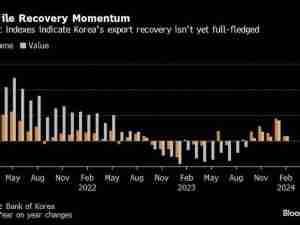Indonesia plans to start importing oxygen tanks as the country battles a fresh wave of coronavirus infections that has overwhelmed its medical system.
Local media have reported that hospitals in Java, the country’s most populated island, are facing a shortage of oxygen. More than 30 patients died in a hospital on Saturday in Yogyakarta after it briefly ran out of supply, CNN Indonesia reported on Sunday.
The government is urging those with mild symptoms to be treated at home “because hospitals are full,” Health Minister Budi Gunadi Sadikin said in a parliamentary hearing Monday. Bed occupancy rates at hospitals across the nation have hit 74%, with some exceeding 100%, said Lia Gardenia Partakusuma, secretary general of the National Hospital Association.
Southeast Asia’s biggest economy recorded another deadliest day on Monday as fatalities hit 558 in the past 24 hours and 29,745 tested positive for the virus. More than 2.3 million have been infected, the worst in Southeast Asia. The latest outbreak threatens economic recovery as the government warns growth may slow to around 4% in the second quarter amid tighter curbs on movements. Growth may improve in the third quarter if the virus spread can be contained by July, said Finance Minister Sri Mulyani Indrawati.
The numbers are likely to stay high over the next 10 to 14 days, driven by the highly contagious delta strain of the virus, Luhut Binsar Panjaitan, who leads the pandemic response in Java and Bali, told reporters Saturday. Mobility has to be reduced by 50% to be able to slow the spread of the delta variant, according to health ministry’s spokesman Jodi Mahardi.
High Traffic
Jakarta still saw high traffic on Monday, the first work day since the curbs came into effect, Governor Anies Baswedan said in a briefing. Companies in essential and critical sectors will have to register their employees, and people are urged to report any non-essential companies that tell their employees to go to office, he said.
Indonesia will take stern action against those who flout restrictions, including shutting businesses, and have asked the police to investigate those who hoard drugs and manipulate their prices for profit, Panjaitan said in a Monday briefing.
The government is also tightening restrictions in 43 regencies outside of Java and Bali, imposing shorter operating hours and limited capacity for offices, restaurants and shopping malls, said Coordinating Minister for Economic Affairs Airlangga Hartarto in a late Monday briefing.
More than 1,000 doctors, nurses and other medical staff have died from Covid-19 since the pandemic began last year, Partakusuma said. A small number of them died even after completing two doses of vaccines. The Indonesian Doctors Association suggested on Monday that a third shot be given to health workers in the hopes of improving the effectiveness of the vaccination.
Herd Immunity
The country may be able to reach herd immunity in November as vaccination covers 70% of the population, Sadikin said. More than 32 million people have received at least their first dose, with over 46 million shots administered by Monday, according to latest ministry data.
All domestic oxygen production will be allocated for medical use for the time being, Mahardi said. Indonesia has around 1.5 million to 1.8 million oxygen cylinders, but the recent spike in cases has caused a slow throughput, according to an Industry Ministry statement.
Meanwhile, the nation’s food and drug regulator, known as BPOM, said it is finalizing emergency use of authorization for Pfizer Inc.’s Covid-19 vaccine after issuing the approval for the vaccine made by Moderna Inc. last week.







